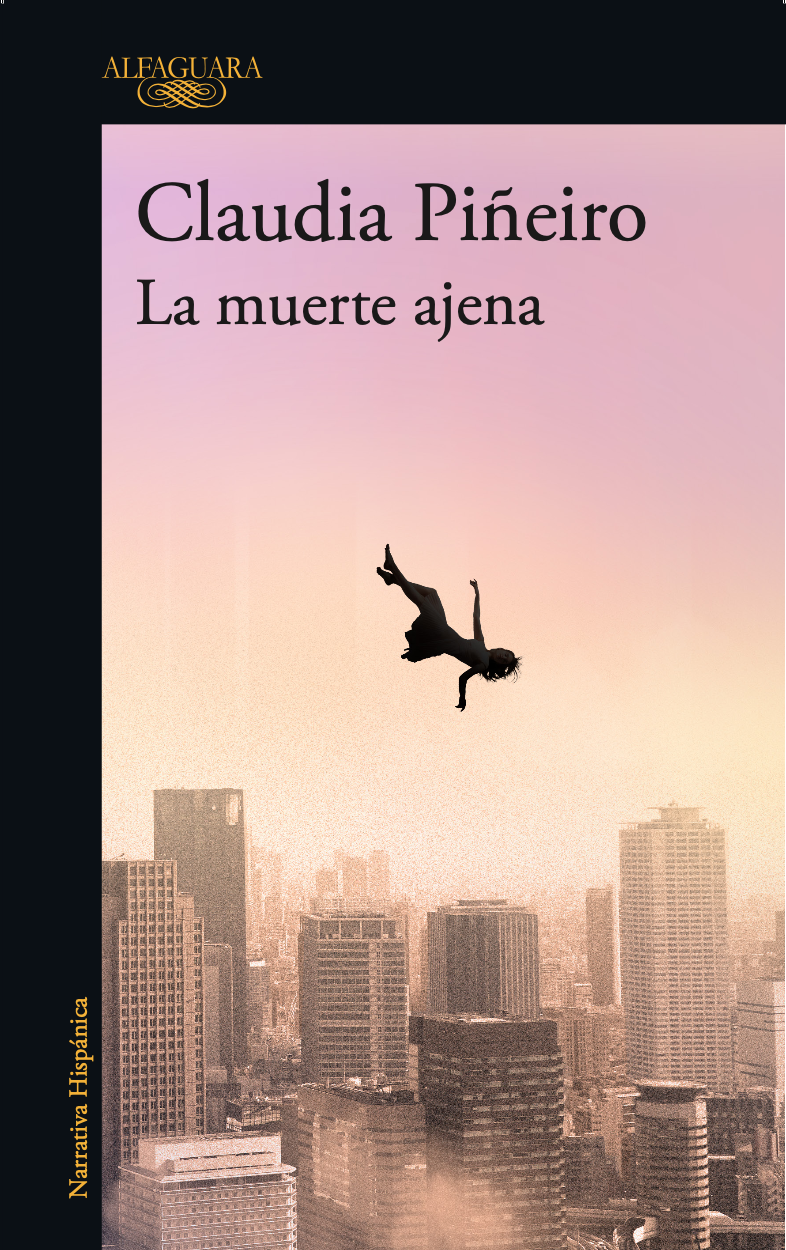A high-end escort dies under suspicious circumstances. Her half-sister, a prestigious journalist, dives into the investigation, unaware of the high price of reopening old wounds. A thriller narrated with the depth and precision of true crime, from multiple points of view, and with a story impossible to put down. From the acclaimed international bestselling author Claudia Piñeiro.
In Buenos Aires, Verónica Balda is a renowned radio journalist with a solid career and a respected voice. But everything changes the day she must cover a story that hits close to home: Juliana Gutiérrez, a 23-year-old woman, has fallen from a fifth floor and is in a coma. Police have not yet determined whether it was a suicide attempt or an attempted murder. But what shakes Verónica is not the news itself, but the victim’s identity: Juliana is her half-sister, the daughter of the woman for whom her father left her and her mother. A stranger with whom she never had a relationship, but this event will force her to look into a wound she thought was closed… but that is still festering. The novel is structured in three parts.
First, with an omniscient narrator, we delve into Juliana’s hidden life and the beginning of Verónica’s investigation. The night of the fall, Juliana was in the apartment of Santiago Sánchez Pardo, a very powerful businessman and nephew of a convicted military officer. Although a case is opened against Sánchez Pardo, Verónica does not dare file a lawsuit, but she does decide to investigate on her own. Thanks to the testimony of one of Juliana’s neighbors, Verónica obtains essential information: Juliana worked as a high-end escort to send money to her mother, who is institutionalized in a psychiatric facility. But most importantly, this neighbor gives her a key piece of evidence: a USB drive that Juliana wanted Verónica to have in case something happened to her. Did Juliana know she could die? Why, out of all the people she could trust, did she choose a half-sister she had seen only twice in her life? Fearfully, Verónica accepts the USB drive and, encouraged by her partner Pablo, gathers the courage to check its contents. We never find out what’s inside, but for Verónica, it’s the piece that determines her next move.
Second part: notes for a documentary. A few months later, the same case is told through a polyphony of voices: the case becomes a documentary and everyone involved gives their version… everyone except Verónica, who stays out of it because she doesn’t want to participate. Leticia, her mentor in journalism, and Pablo, her partner, offer opposing perspectives that reveal just how alone, misunderstood, and even betrayed Verónica has been: both hid information from her and used the case for their own purposes. On top of that, Sánchez Pardo is cleared of suspicion due to lack of evidence. During this time, through the testimony of other characters, the reader understands that Verónica has been constantly torn: should she or shouldn’t she reveal the evidence? She wanted to stay neutral because even thinking of taking action still makes it hard to tell if it would be doing justice to Juliana or injustice to herself.
Third part: versions of me. For the first time in the novel, Verónica speaks in first person. As if she had finally found the strength to tell her story. From the moment she hears the news of Juliana’s accident, she revisits everything she’s been through, this time through her own eyes. Her father’s abandonment, her mother’s death, the anger toward those who took her family away, the pain for a sister she never knew… And so, she decides to confront the root of all her resentment: Mabel, Juliana’s mother. When she dares to visit her in the facility, she finds her bedridden; Mabel mistakes her for her own daughter and throws insults at her. Something changes. Verónica leaves, but the pain has shifted. She has finally managed to connect with Juliana, who, like her, was caught in the crossfire. By recognizing herself in her, she finally understands there’s only one way to close that wound: to file a lawsuit against Sánchez Pardo on Juliana’s behalf. And, more importantly, to acknowledge her as her sister. To the world, and to herself.
RELEVANT INFORMATION: The Death of Another is the new novel by bestselling Argentine author Claudia Piñeiro. In it, she explores past traumas and family bonds, delving into the intricacies of, on one hand, journalism, and on the other, high-end prostitution. Its mix of thriller and drama, with touches of true crime (despite being fiction), makes this story a perfect audiovisual product—both entertaining and emotionally moving.
The novel frequently shifts point of view and timeline. It even includes news broadcasts and testimonies from the documentary being made within the story. This way, we discover the plot as if we were another viewer of the news, and since the case of Juliana’s death remains unresolved, the novel leaves the door open for a sequel.
It recalls the acclaimed series Adolescence, for its mock true-crime style used to tackle current social issues, or Monsters: The Lyle and Erik Menéndez Story. Reading The Death of Another, with its structure, themes, and complex character portraits, gives you the feeling that it could easily be a real case.
Claudia Piñeiro is one of the most widely read and translated international bestselling authors, as well as a TV screenwriter and playwright. Several of her novels have been adapted for the screen, becoming major successes. Notable audiovisual adaptations include The Widows of Thursdays, The Kingdom, Elena Knows, and Betibú.
As for awards, she has received many, including the Clarín Prize, the Latin American Prize for Children’s and Young Adult Literature, the Pléyade Prize, and she has been a finalist for the Planeta Prize (Argentina) and the La Sonrisa Vertical Prize, as well as being selected for the Edebé Editorial Contest.
AUDIOVISUAL POTENTIAL: TV Series, Miniseries, Film, TV Film.
AVAILABLE LANGUAGES: Spanish

Adquirir los derechos
Para ponerte en contacto con nosotros completa el siguiente formulario y te responderemos en breve.

